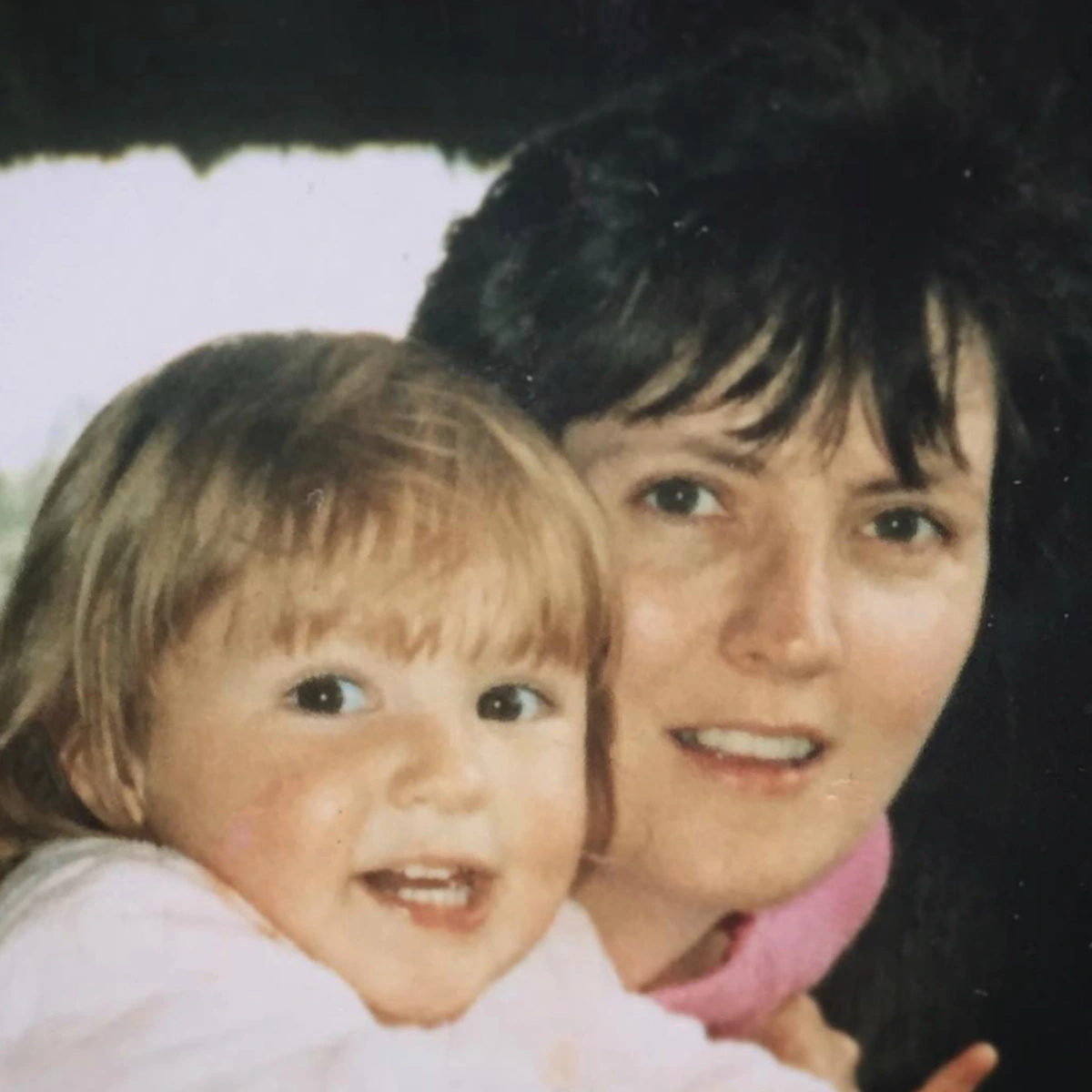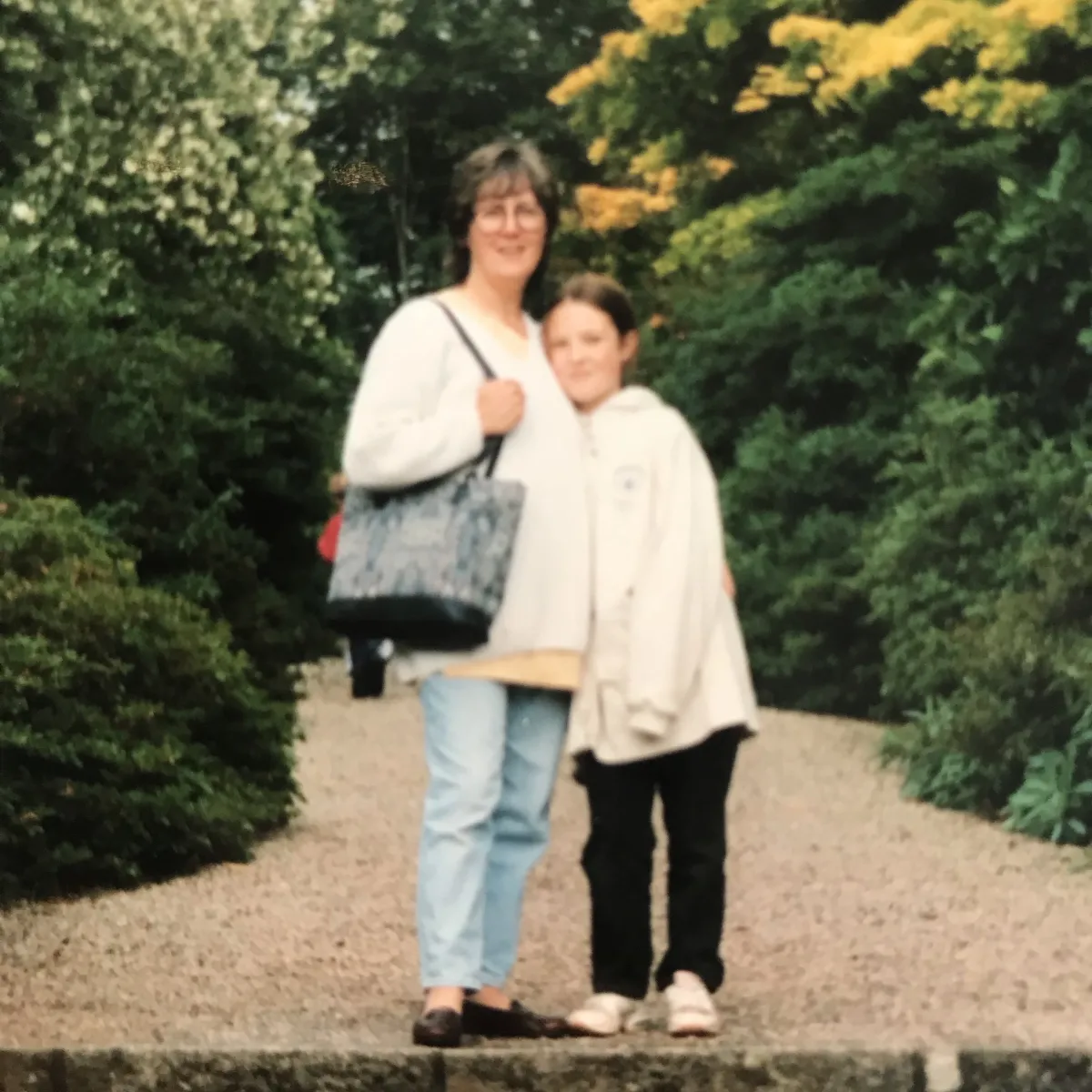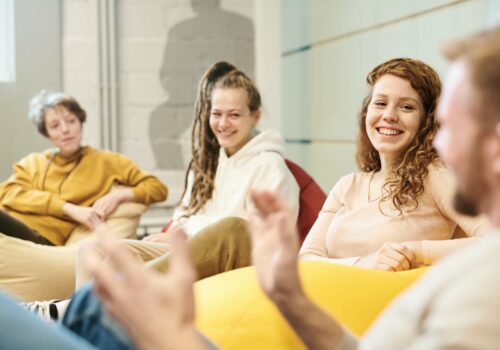When I was 15, my Mum was diagnosed with an aggressive form of stomach cancer. Turns out, the doctors had been ignoring her symptoms for a couple of years because she didn’t have the typical risk factors for someone with cancer. She wasn’t overweight, didn’t smoke or drink, and this particular form of cancer doesn’t run in the family – so they weren’t looking for it.
I remember her sitting down to tell us one day in February after school. “I’ve got cancer” she told us, “but don’t worry. I’m going to have treatment and surgery and everything will be fine”.
I believed her. I didn’t know any differently and had never had any experiences with cancer before. I wasn’t prepared for what happened over the coming weeks and months.
Mum started chemo and swiftly started to lose her hair, and as the weight fell off of her it became obvious that this was really serious. We didn’t know just how serious until just three months later our Dad sat us down to tell us “Mum won’t make it through the week”.
This was the first time I realised I was going to have to face life without my Mum. That I would have to go through all my teenage milestones – like having my first boyfriend, doing my A levels and applying to University – without her by my side.
She died just three days later, at home with her four children and surrounded by family.
This was the first time I realised I was going to have to face life without my Mum. That I would have to go through all my teenage milestones – like having my first boyfriend, doing my A levels and applying to University – without her by my side.
There’s never a good time to lose your Mum, let alone when you’re a teenager going through your GCSE exams. I was pulled out of my Maths exam to be at home with Mum when she died, and I went back into school the next day to take another exam.
As the eldest of four children, with my younger sister being just 9 years old at the time, I ended up taking on a lot of adult responsibility very early on. Not only was I having to contend with the loss of my main attachment figure, I also had to focus on my education and taking the next steps to get through exams and into Sixth Form to do my A levels whilst also picking up a lot of slack at home while my Dad was struggling with his own grief. I’d be responsible for cooking, cleaning and looking after my siblings. There wasn’t a lot of room for my grief.
So I struggled through those late teenage milestones, barely scraping through my A Levels (with multiple threats of being kicked out of Sixth Form) and I made it into University to study Business Administration.
I didn’t really want to be at University, but I didn’t know what else to do. I felt completely lost and was still reeling from the trauma of losing my Mum.
I hadn’t realised until recently just how badly my world had spun off course at age 15. The future that I assumed was planned out for me, one that I’d dreamed about and was excited for, was now just a faint image in the distance. I wasn’t sure of anything anymore except that I wanted my Mum so desperately and I was sorely missing that safe, secure relationship that I didn’t have with anyone else.
Having not had the space to grieve properly I found myself struggling with bad anxiety and depression all through my late teens and early twenties. At about age 23, it got to a point where it was so bad I had no other option but to get some support.
I reached out to a local counselling organisation to speak with someone about the challenges I’d been facing. It was the first time I’d had an open and non judgemental space to talk about everything that had happened over the last eight years. For the first time I was able to create the smallest window of space to air those really difficult feelings I’d kept bottled up inside. The ones I’d kept under lock and key for fear that if they came out they’d overwhelm me and I’d not be able to recover, like I’d never make it out from under the weight of them.


Over time I started to feel like I could breathe again, like my lungs had just a bit more space to expand. I knew I was ready to find some inspiration to ‘start’ my life, but I didn’t know where to begin. I looked at people in my circle to see what they were doing with their lives and if there was anything that might spark some creative joy within me.
At the time, my cousin was training to be a Play Therapist. I’d never heard of Play Therapy before but it sounded intriguing. She explained to me that it’s like counselling for children, but rather than using words to describe how they’re feeling or what they’ve been through they use toys and play. “Play is the natural language of children”, she told me.
In that moment I realised that something major had been lacking for me and my younger siblings when we were dealing with the trauma and grief of losing our Mum. We hadn’t had anyone we could talk to, or anywhere we could go to blow off steam and be children, with someone who understood how we might be feeling. All of the adults in our lives were also grieving and it made it hard for them to really give us what we needed at the time. No one at school was well equipped enough to support us either – we really were left alone in our separate grief processes.
As soon as my cousin explained Play Therapy to me, I knew I’d found something special – something inspiring. I wanted to provide Play Therapy to children and young people who’d faced trauma so they didn’t have to go through the same isolating and frightening experiences that I had. I set my mind to providing a service to local children through their schools, and started raising money.
Over the next decade I worked hard to build up a Play Therapy charity in Oxfordshire, one that would go on to win awards and support hundreds of children and families. Clear Sky Children’s Charity was born from my desire to make sure other children and young people didn’t feel so alone when they were facing really difficult things in life. I went on to do a Masters in Play Therapy and learn about ways that parents play a crucial role in children’s mental health, and how strong relationships (with remaining parents / carers) can provide protection for the developing minds of children and young people.
From my Masters research I devised a 6 step programme for parents and carers, called Treasure Time, to develop the strong foundations of good mental health, with strong communication and secure attachment between their children and themselves.
I didn’t realise it at the time, but all of the work I was doing in the charity and with Treasure Time was part of me processing my loss. I found I could fill in missing pieces of my puzzle by learning about the way children experience and process trauma. I understood why I’d struggled so much with the loss of my Mum and that I really lacked age appropriate support when I needed it the most.
I realise now that seeing a child in pain, especially your own child, can be extremely triggering for parents. If you’re also grieving it might feel like an impossible situation to overcome. My best advice for parents is that your child really needs you to bring them in closer to you during this time. It’s easy for families to fracture after the loss of a parent in particular. Everyone has their own grief journey and you might not be on the same path at the same time. Everyone’s experience is valid.
Where you can, normalise grieving. Normalise having conversations about the person you’ve lost. Acknowledge there will be days when you cry, and days that you laugh and everything in between. But you need to do parts of the journey together. It’s easy for children to feel isolated and scared when they’ve lost someone close to them, and this can make them vulnerable. To best protect your children and to preserve their mental health you need to make sure the relationship you have with them is strong and secure so that they know they can turn to you and count on you when they need your help.
Sophia is a Play Therapist and Founder of Clear Sky Children’s Charity & Treasure Time an organisation that supports children impacted by trauma through Play and Creative Arts Therapy, which she founded because of the experience of losing her Mum as a teenager.




